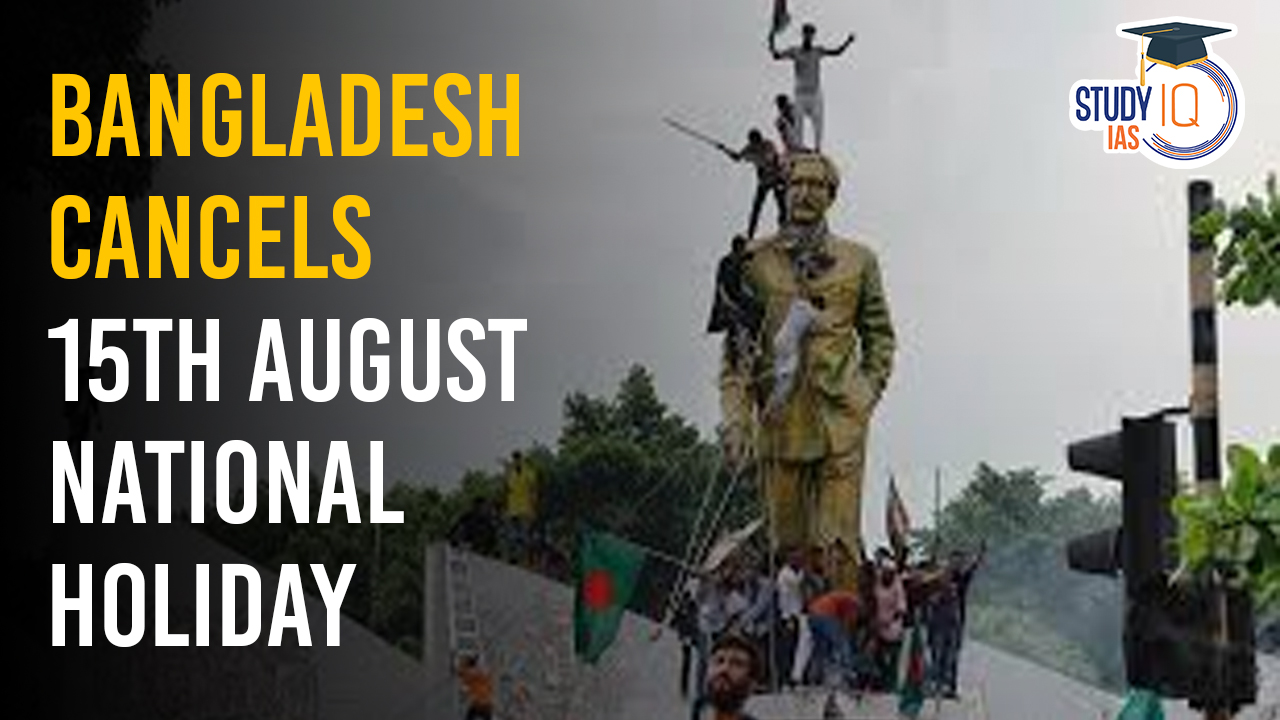Table of Contents
In a controversial move, Bangladesh’s interim government has announced the cancellation of the National Mourning Day holiday traditionally observed on August 15. This day historically commemorates the assassination of Sheikh Mujibur Rahman, the founding leader of Bangladesh. This decision, approved by the Advisory Council and led by Chief Adviser Muhammad Yunus, has sparked significant debate both within Bangladesh and internationally. This article explores the implications of this cancellation, its impact on national identity, and its potential effects on India-Bangladesh relations.
Historical Significance of August 15 in Bangladesh
August 15 holds profound historical significance for Bangladesh. On this day in 1975, Sheikh Mujibur Rahman, known as the Father of the Nation, was assassinated along with his family in a military coup. Rahman’s leadership was instrumental in the country’s independence from Pakistan in 1971, making his death a pivotal moment in the nation’s history. The day was established as National Mourning Day to honor his contributions and remember the sacrifices made during the liberation struggle.
Cancellation of the August 15 Holiday
The recent decision by Bangladesh’s interim government to cancel the August 15 public holiday has raised eyebrows. The announcement came after a meeting of the Advisory Council, chaired by Chief Adviser Muhammad Yunus. The cancellation marks a significant departure from the traditional observance of National Mourning Day and has been justified by the interim government as a measure to focus on national recovery and political stability.
Reasons Behind the Cancellation
Several factors contribute to the cancellation of this significant day:
- Political Shifts: The interim government, which took charge following the ouster of Prime Minister Sheikh Hasina, is attempting to redefine the political landscape. The decision to cancel the holiday may be seen as an attempt to distance the current administration from the legacy of the previous government and its symbolic associations.
- Public Unrest: Bangladesh has been experiencing widespread protests and unrest following the fall of Hasina’s government. The interim administration may be aiming to reduce political tension and refocus public attention on immediate concerns rather than historical commemorations.
- Administrative Changes: The interim government is undertaking various administrative reforms, and altering public holidays could be part of a broader strategy to implement new policies and directives.
Impact on Bangladesh’s National Identity
The cancellation of National Mourning Day has significant implications for Bangladesh’s national identity:
- Historical Continuity: August 15 has been a day of reflection and national unity. Its removal from the calendar disrupts the continuity of national memory and could lead to a loss of collective historical awareness among younger generations.
- Political Symbolism: Sheikh Mujibur Rahman’s legacy is deeply embedded in the nation’s identity. The cancellation of the holiday could be perceived as a denial of his role in the country’s history and a political maneuver to erase past associations.
- Public Sentiment: The decision has been met with public backlash. Many view it as an affront to national pride and a disregard for the sacrifices made during the liberation struggle.
Impact on India-Bangladesh Relations
The cancellation of the holiday may also affect India-Bangladesh relations:
- Diplomatic Relations: The shift in Bangladesh’s political landscape could lead to changes in its foreign policy, impacting diplomatic relations with neighboring countries, including India. The historical ties between the two nations, particularly in the context of the liberation war, could be strained by recent developments.
- Cross-Border Tensions: The ongoing unrest in Bangladesh might lead to increased border tensions and security concerns for India. Issues such as illegal migration and border security may become more pronounced.
- Economic and Strategic Interests: India has significant economic and strategic interests in Bangladesh. The current political instability and changes in governance could affect trade, investment, and regional cooperation initiatives.
Conclusion
The cancellation of the August 15 National Mourning Day in Bangladesh marks a significant and controversial shift in the country’s historical and political landscape. This decision not only impacts national identity and public sentiment but also has broader implications for regional relations, particularly with India. As the situation continues to evolve, it will be crucial for both domestic and international stakeholders to closely monitor the developments and their potential repercussions.


 Serious Fraud Investigation Office (SFIO...
Serious Fraud Investigation Office (SFIO...
 Article 142 of Indian Constitution, Sign...
Article 142 of Indian Constitution, Sign...
 Pakistan-Occupied Kashmir (PoK): History...
Pakistan-Occupied Kashmir (PoK): History...





















